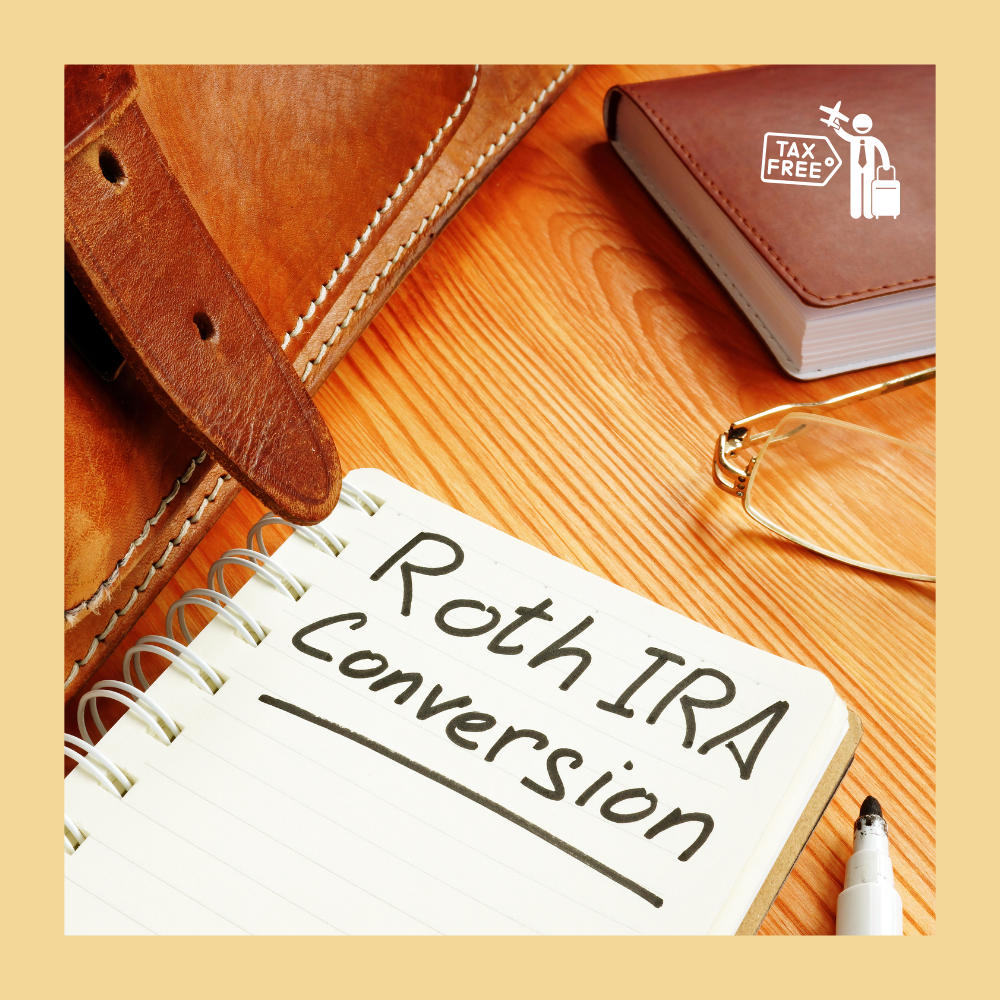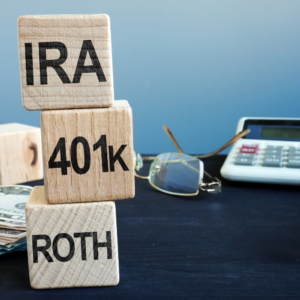
Are you a US expat living overseas looking to do a Roth conversion? Did you know there is a way for Americans to do tax-free Roth conversions when living overseas? If you have a 401k, IRA, or other retirement account from your time working in the US, there is a way to convert those pre-tax accounts to a Roth IRA without paying a cent. Below we will explore this exceptional fiscal advantage, and explain why US expats can convert their retirement fund to a Roth, tax-free.
What is a Roth Conversion?
A Roth conversion is the process of transferring funds from a traditional IRA (or other qualified retirement plans) to a Roth IRA. This will result in taxable income in the year of conversion, but the subsequent growth of your funds will be tax-free, as well as your qualified withdrawals. In addition, Roth IRA do not have the required minimum distributions (RMDs) of traditional IRAs, allowing you to take as much or as little of your money out whenever you want.
Why can US expats do tax-free Roth conversions?
As most US expats already know, Americans must file US taxes with the IRS each year, no matter where they live. However, the IRS does allow an annual Foreign Earned Income Exclusion (FEIE) which allows you to deduct a certain amount of your foreign earned income each year. (2024 FEIE: $126,500 per person). In addition, US expats can still use the standard deductions that all Americans receive at tax time. ($14,600 for single filer for 2024)
US expats can leverage the Foreign Earned Income Exclusion, standard deduction, and other deductions to perform a Roth conversion tax-free. To qualify, you must fill the following criteria:
- Your total foreign income is lower than the Foreign Earned Income Exclusion and Housing Exclusion. If it goes over, you must make sure that additional part does not surpass your standard deduction.
- Any additional un-excluded income must be less than your total deductions.
- You must have or open a Roth IRA account. (link to page on website that lists Roth IRAs)
If you satisfy these three requirements, you can convert tax-free from your IRA or 401k to a Roth IRA any amount that is less or equal to your unused deduction amount. To clarify, let’s take a look at an example below.
Case Study
Jerome, who is single and currently lives and works in France, earned $60,000 last year. He has a 401k with a balance of $500,000 from his previous employer in the US. He also rented out his apartment back in the US for a total of $12,000/year. After deductions (maintenance, mortgage interest, etc.), he will claim $6,000 of rental income this year. Beyond his French salary and his US rental, he has no other incoming income.
Since he earns less than the Foreign Earned Income Exclusion (2024 FEIE: $126,500 per person), he will not pay any US taxes on his French salary. As a single taxpayer, he can claim the standard deduction ($14,600 in 2024), which he can use against his rental income to bring his taxable income to zero.
However, we see that there is still an “unused” part of the deduction: $14,600 – $6,000 = $8,600. This unused part of the deduction can be used against any type of income, including Roth IRA conversions. Therefore, Jerome can convert up to $8,600 of his 401k to a Roth IRA without paying any taxes.
As you can see in the example above, Jerome can take advantage of the unused part of his deduction to transfer $8,600 of his 401k to a Roth IRA which will then grow tax-free indefinitely. If his financial situation stays the same, he could continue transferring $8,600 each year completely tax-free. In comparison, if he was in the US, his income would put him in the 22% tax bracket, and the Roth conversion would cost him about $11,000 in tax payments. He could also convert an additional $47,150 in 2024 and still stay in the 12% tax bracket.
Tax-Free Roth Conversion Checklist for US Expats:
- Do you use the Foreign Earned Income Exclusion when filing your US taxes?
- Will your annual income be below this year’s Foreign Earned Income Exclusion?
- Is the part of your income above the FEIE, or other un-excluded income less than the deductions you can claim?
- The conversion has to be done by December 31st
So how do I go about doing my Roth Conversion?
Each person’s fiscal and financial situation is different, that’s why it’s necessary that you consult a financial or fiscal professional to verify that you qualify for the tax-free conversion and to make sure you go through the right steps to complete the process. The cross-border financial advisor at Harrison Brook has the experience and expertise to guide you through the process and make sure you avoid errors so as not to end up with an unexpected tax bill or penalties.
Important Considerations
- Tax deductions: It’s important to know what your deductions will be in the forthcoming year. This will allow you to calculate if there will be an “unused” part of your deduction(s).
- Tax implications: While the conversion itself may be tax-free, any subsequent earnings beyond the FIEI and deductions will be considered taxable income.
- Foreign tax implications: Some countries may impose taxes on Roth IRA conversions or distributions. Consult with a tax advisor to understand the potential tax consequences in your specific situation.
Harrison Brook to Perform Tax-Free Roth Conversions
As expats often have to deal with complex, cross-border financial and fiscal regulations, it’s important that you have a competent team of financial professionals to help you reap the benefits of a tax-free Roth conversion. At Harrison Brook, we have done the legwork to find the tax specialists and custodians that work with US expats living overseas. Our cross-border advisors can assist in completing the process of Roth conversions while taking into account all your other financial needs. Don’t hesitate to reach out and book a meeting with Harrison Brook.



